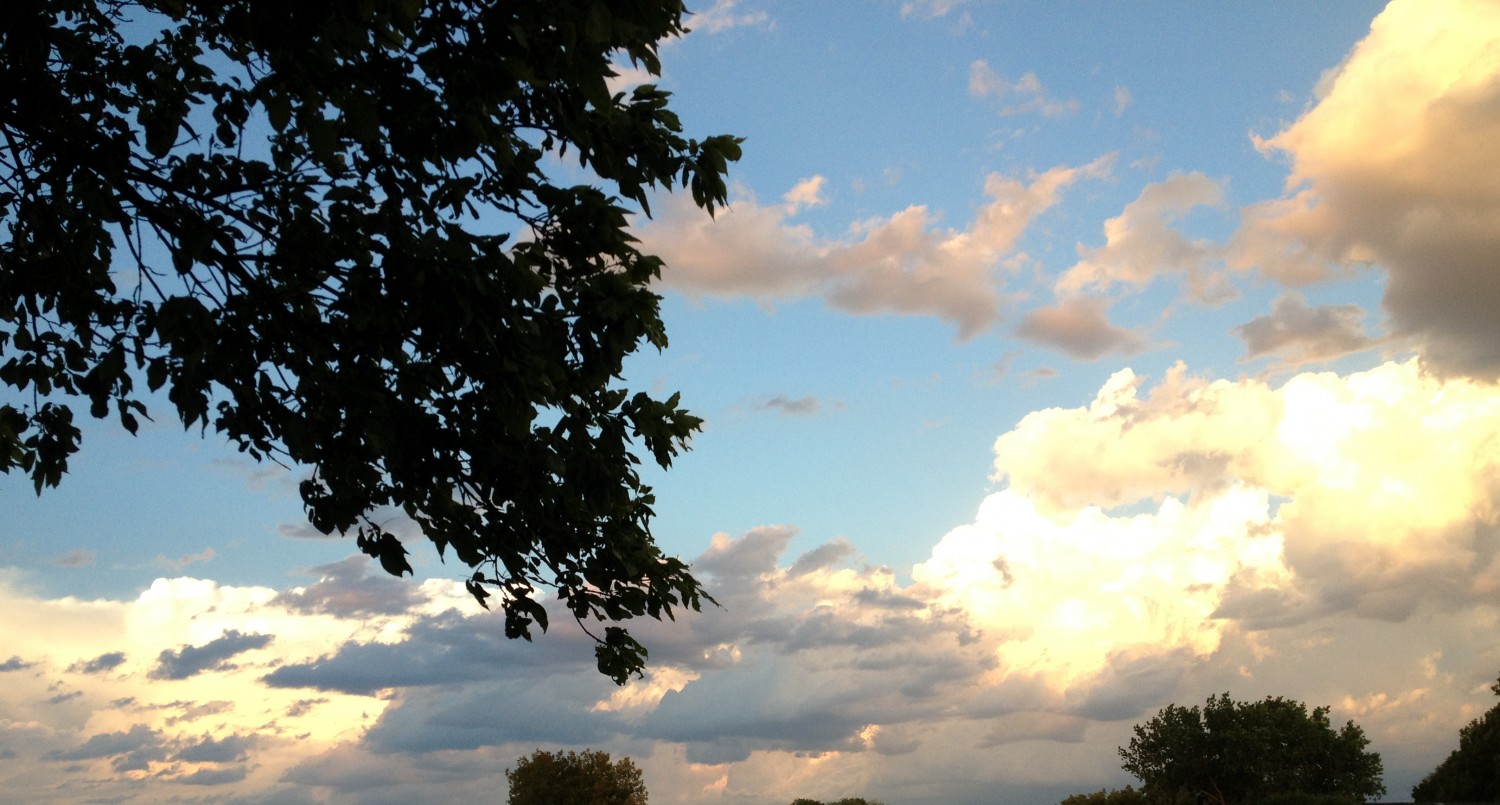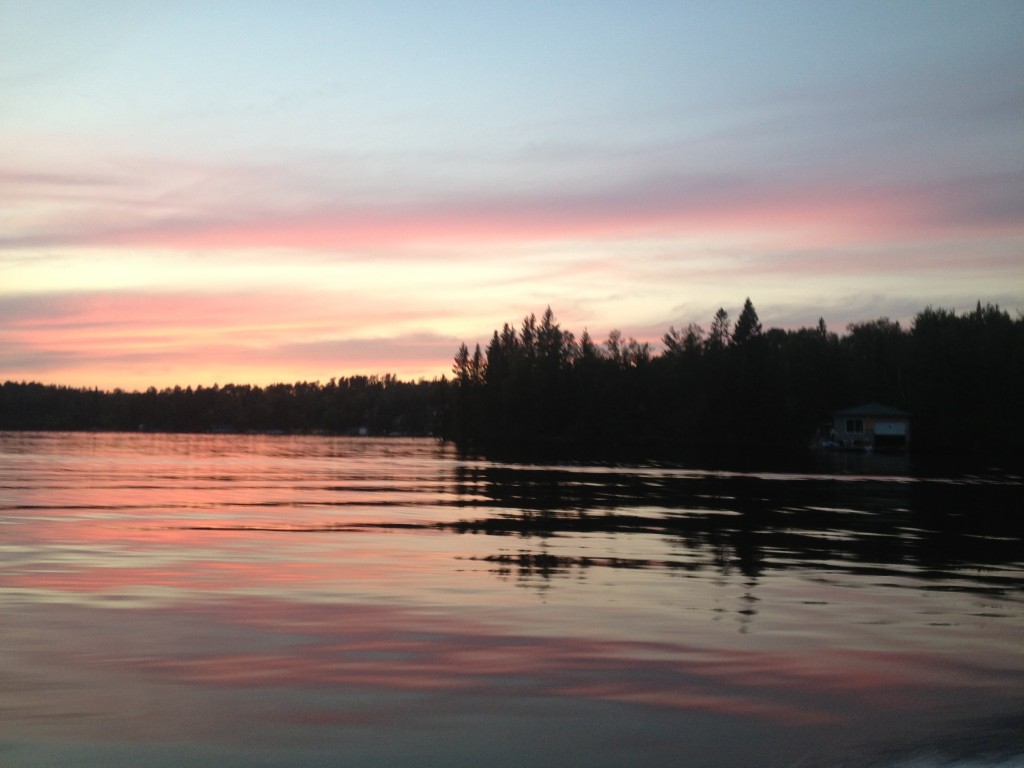Home was a Feeling (Lesson 2.1 Part 1)
It was a feeling in her chest that spread up into her shoulders, like wings of warmth. A sense of calm, a stillness, a knowing that she was cared for. That feeling had gone missing months ago.
There had been laminate floor. The smell of breakfast permeated the air on weekend mornings. The bacon smell would stick in her hair like campfire smoke. Talk radio droned on in the background at every meal time. Once, her bedroom had been papered with pastel-coloured hot air balloons, and inverted V shaped birds played co-pilot. Now her bedroom was an office. Her childhood was packed up in Rubbermaid bins and recorded in dusty scrapbooks.
Sunday nights there had been roast beef and Grandma always offered an assortment of desserts to choose from. There was blue carpet and Grandpa sat in a pink armchair. He’d tell stories over tea. Stories that everyone had heard hundreds of times. Some of them were better than others. Like the one in which his mother sent him to buy a roast. He bought the roast and gave it to his dog to carry home, a test of loyalty, a new trick. The roast arrived home in one piece but the butcher’s paper had worn away from the poor dog’s saliva. His mother was not pleased, but to Grandpa, the dog had proven his loyalty. As a child she enjoyed the Sunday night tradition: they’d watch the Sunday night Disney specials on CBC, and practice their piano lessons on Grandpa’s electronic keyboard that could play a dog’s bark sound effect for every note. As a teenager she had resented the dinners and often found alibis to avoid them. As an adult she had listened with all of her might to commit Grandpa’s stories to memory as he lost his mobility, his sight, and then his breath. When dementia took Grandma’s strength away they left the blue carpet behind and packed up years and years worth of boxes. After Grandpa died, as she walked through the house, she could still smell the Sunday roast beef dinners. The empty rooms were bones on a skeleton of a life once lived. Sixty-seven years of love, memories and mundane moments of sandwiches cut in half and plants watered. 67 years reduced to boxes, empty rooms and a house no longer theirs.
There had been a dog, once. She and her brother had campaigned for a dog for years. The puppy they settled on was nicknamed Big Bertha. In her litter she was the troublemaker. In her new family she was a perfect fit. Smart enough to learn tricks, patient enough to endure hours of being dressed in doll clothes and posed for holiday themed photos. Playful, obedient and rambunctious enough to make an impact. Her nose was black and cracked, a perfect size for kissing, her bottom teeth were crooked, and her paws smelled like wet grass. She had grown closest to the dog as they both got older. They knew each other’s minds as old friends do. Without a word she could tell when the dog was sick. The dog knew when she was sad. One Thanksgiving, after she had left, the dog’s kidneys stopped working. She cried for days when she found out. An unending source of love had been snuffed out. The impossible was true.
There was a house in the trees. Amid the birch and the spruce. Up on a rock above the lake where it trembled during thunderstorms. She had played hide and seek in the woods there as a child. She had read books by the armful all summer long. It was close to the earth and away from the noise of the world. It rejuvenated her.
There had always been other people. Loving looks and smile lines. Soft voices and genuine questions. There was talk about sports, who had won and who got traded, and stories about other families. Her Grandmother’s funny voice, her brother’s stoic exterior that belied protective instincts, her dearest friend with slender fingers and a face like the moon. Girlfriends who knew her beginnings and who now had babies with their own beginnings. They held her in their thoughts, and listened to her worries, so foreign from their own. They mailed birthday cards and planned time to catch up. There were warm bodies that loved her; filled her up with words, gestures, and stories to bring her close, no matter where she was.
She had left it all, them all behind, and moved on to other things. She had left it all intact, a harmonious whole, and it had fractured. And now that feeling, that warmth in her chest that spread outwards, was displaced. She had tried to cling to the feeling through the hot air balloon wallpaper, the blue carpet and roast beef dinners, the feel of the dog’s soft coat against her face. What had warmed her chest no longer was.
She found glimpses of warmth every day. It was there all along it was just a matter of knowing where to look for it. A new game of hide and seek. A new definition of what created the feeling that once was. The kindness of other people, a new everyday ritual, a walk among the trees, a dog snoozing in a doorway. She found the feeling again. She found it in herself. It warmed in her chest and moved out to her shoulders, like invisible wings. And with those wings she moved. ___________________________________________
I sat down to write a short story about my conceptions of home and this is what came out. Home, I’ve found, is a moveable thing because we carry it with us. Our definition of home gets challenged constantly in life so we are constantly renegotiating what it really means. Ultimately, I think home is in ourselves and in those who we love, and who love us. When we lose the people who meant home to us we rely on the stories of them that we carry in ourselves.
Works Cited
Cummings, e.e. “[i carry your heart with me(i carry it in].” Poetry Magazine. Poetry Foundation, June 1952. Web. 31 Jan. 2014.
Smith, Courtney. “3D Skeletal System: The Shoulder Girdle.” Visible Body. Visible Body, 15 Feb. 2013. Web. 31 Jan. 2014.
Toplaycool21. “The Wonderful World of Disney Intro.” Online Video Clip. YouTube. Youtube. 26 May 2011. Web. 31 Jan. 2014.


